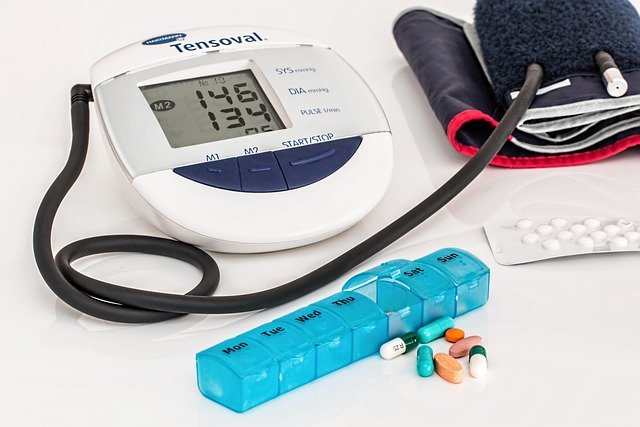Comprehensive Guide to Weight Loss Treatments: Effectiveness and Costs in 2025
In 2025, weight loss treatments are more diverse and accessible than ever. This guide breaks down the most effective options, what they cost, and how to choose the best one for your needs. From popular treatments to new innovations, find out what works, what doesn’t, and what fits your lifestyle.
Weight loss continues to be a significant health focus for millions of people worldwide. As medical science advances, the landscape of available treatments has expanded dramatically, offering more personalized and effective options. In 2025, individuals seeking to manage their weight have access to a diverse range of treatments spanning from traditional lifestyle modifications to innovative medical interventions and technological solutions. This comprehensive guide examines the current state of weight loss treatments, their effectiveness, associated costs, and how to determine which approach might best suit your individual needs and goals.
Weight Loss Treatments: Effectiveness and Costs in 2025
The weight loss industry has undergone remarkable transformation in recent years. Current treatments fall into several categories: lifestyle interventions (diet and exercise programs), pharmacological treatments (prescription medications), surgical procedures, and emerging technologies. Each approach offers different levels of effectiveness depending on individual factors such as starting weight, medical history, genetic predisposition, and commitment level.
Lifestyle interventions remain the foundation of weight management, with structured programs showing success rates of 5-10% weight reduction when followed consistently. These approaches typically cost between $50-500 monthly depending on whether they include professional coaching, meal plans, or specialized food products.
Pharmacological treatments have seen significant advancements, with newer GLP-1 receptor agonists demonstrating average weight reductions of 15-20% in clinical trials—substantially higher than previous generations of weight loss medications. However, these medications range from $300-1,200 monthly, with varying insurance coverage.
How Effective Are Weight Loss Treatments in 2025? Full Breakdown
Effectiveness varies significantly across treatment types and individual circumstances. Current data indicates:
- Lifestyle modifications: Average weight loss of 5-10% of initial body weight when maintained for 6-12 months, with long-term success rates of approximately 20% (defined as maintaining loss for 1+ years)
- Prescription medications: Newer GLP-1 and dual GLP-1/GIP agonists show 15-20% average weight reduction when used as prescribed, while older medications typically achieve 5-10% reductions
- Bariatric surgery: Continues to demonstrate the most substantial results, with average weight losses of 25-35% maintained over 5+ years in compliant patients
- Digital therapeutics and remote monitoring programs: Show improved adherence rates of 60-70% compared to 30-40% for traditional programs, resulting in average weight losses of 7-12%
Importantly, combination approaches—such as medication plus lifestyle changes or surgery followed by comprehensive support programs—consistently demonstrate superior outcomes compared to single-modality treatments.
Proven Weight Loss Treatments That Deliver Results in 2025
Evidence-based treatments showing consistent effectiveness include:
-
Enhanced GLP-1 Receptor Agonists: These medications mimic hormones that regulate appetite and food intake. The latest generation demonstrates significant improvements in both effectiveness and side effect profiles compared to earlier versions.
-
Modified Intermittent Fasting Protocols: Research continues to support various time-restricted eating patterns, particularly those adapted to individual metabolic profiles, showing sustainable weight losses of 8-12% when maintained.
-
Metabolic Surgery: Procedures like sleeve gastrectomy and gastric bypass remain highly effective interventions for those with severe obesity or obesity with comorbidities, with evolving minimally invasive techniques reducing recovery times.
-
Digitally-Enhanced Behavioral Programs: Combining cognitive behavioral therapy with AI-driven personalization and continuous monitoring has shown improved adherence and outcomes compared to traditional behavioral approaches.
-
Gut Microbiome Interventions: Emerging treatments targeting gut bacteria composition have moved from experimental to clinical application, with initial studies showing promising results for specific patient populations.
Finding the Right Weight Loss Treatment for Your Goals in 2025
Selecting an appropriate weight loss approach requires consideration of multiple factors:
- Health status and medical history: Certain conditions may make you a better candidate for specific treatments while excluding others
- Weight loss goals: Realistic expectations should align with treatment capabilities
- Previous weight loss attempts: Your history can inform which approaches might be most suitable
- Lifestyle and commitment level: Some treatments require more significant lifestyle changes or monitoring than others
- Financial considerations: Cost and insurance coverage vary dramatically across treatment types
Medical professionals increasingly recommend a stepped approach, beginning with less invasive options and progressing to more intensive interventions if needed. Personalized medicine advancements now allow for more tailored treatment selection based on genetic, metabolic, and behavioral factors.
Cost and Effectiveness of Weight Loss Treatments in 2025: What You Need to Know
The financial investment required for weight loss treatments varies substantially, with effectiveness often—but not always—correlating with cost. Understanding the relationship between investment and expected outcomes can help in making informed decisions.
| Treatment Type | Provider Examples | Average Cost (2025) | Expected Effectiveness |
|---|---|---|---|
| Premium Lifestyle Programs | Noom Health, WW (formerly Weight Watchers) | $30-70/month | 5-10% weight loss |
| Prescription GLP-1 Medications | Novo Nordisk (Wegovy), Eli Lilly (Zepbound) | $900-1,300/month | 15-20% weight loss |
| Generic Weight Loss Medications | Various Pharmacy Providers | $10-150/month | 3-8% weight loss |
| Bariatric Surgery | Hospital Systems, Surgical Centers | $15,000-35,000 (one-time) | 25-35% weight loss |
| Digital Therapeutics | Omada Health, Virta Health | $50-400/month | 7-12% weight loss |
Prices, rates, or cost estimates mentioned in this article are based on the latest available information but may change over time. Independent research is advised before making financial decisions.
Insurance coverage for weight loss treatments has expanded in 2025, with more plans covering evidence-based interventions when medically indicated. However, coverage varies significantly between providers and plans. Many employers now offer subsidized weight management programs as part of wellness benefits, potentially reducing out-of-pocket costs.
When evaluating cost-effectiveness, consider not just the upfront price but the total investment required to achieve and maintain results. For example, while bariatric surgery has high initial costs, its long-term effectiveness may make it more economical than years of other treatments for those with severe obesity.
The weight loss treatment landscape continues to evolve rapidly, with new options emerging and existing approaches becoming more refined. The most successful weight management strategies typically involve personalized combinations of treatments tailored to individual needs, preferences, and biological factors. Consulting with healthcare providers specializing in obesity medicine can help navigate these options and develop an effective, sustainable plan aligned with your specific circumstances and goals.
This article is for informational purposes only and should not be considered medical advice. Please consult a qualified healthcare professional for personalized guidance and treatment.





